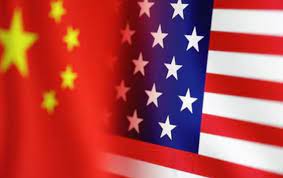Frank Ching
After months of intense diplomacy, the White House press secretary, Karine Jean-Pierre, announced Oct. 31 that US President Joe Biden will meet with Xi Jinping in November when the Chinese leader is expected to visit San Francisco to take part in the Asia Pacific Economic Cooperation (APEC) forum.
The following day in Beijing, Chinese Foreign Ministry spokesman Wang Wenbin said, somewhat tentatively, that the two countries had “agreed to work together for a meeting between the two heads of state,” adding that, as Foreign Minister Wang Yi had said, “the road to San Francisco cannot rely on autonomous driving,” meaning that there was still work to be done. Neither spokesperson mentioned Hong Kong, although a Biden-Xi summit was inconceivable without an understanding on the treatment to be accorded by Washington to the city’s chief executive, John Lee, who as leader of an APEC member was entitled to attend the San Francisco meeting but who, as someone sanctioned by Washington, was barred from entering the United States, this year’s host.
“With a part of his own country excluded, how could Xi come to the United States?” a leading American Sinologist asked rhetorically, alluding to Washington’s desire to bar Lee but welcome Xi. Arguably, what Lee did after China imposed a national security law on Hong Kong in 2020 when he was the city’s secretary for security – which the United States interpreted as “undermining Hong Kong’s autonomy” – was to carry out orders from Beijing that ultimately emanated from Xi. So, ironically, the United States penalized an official who followed orders while wooing the boss who issued those orders.
The United States was eager for Xi, the Chinese leader, to attend the Nov. 15-17 APEC leaders meeting to enable a Biden-Xi summit on its sidelines. Earlier hopes of a Biden-Xi meeting in New Delhi during the Group of 20 summit in September vanished after Xi failed to show up. The conundrum posed by Hong Kong and whether its leader should be invited to San Francisco was evident to all parties for many months. Under APEC’s rules and conventions, the rotating host would invite all other member economies to attend meetings during the year, including the leaders to attend APEC’s annual summit.
Within the United States Congress, however, there were those who felt that since Lee had been sanctioned, he was barred from entering the country and hence should not be issued an invitation, while both China and Hong Kong insisted on Lee’s right to attend. How could this conundrum be resolved? Without a resolution satisfactory to all three parties, there could be no United States-China summit meeting in San Francisco.
Last February, then deputy secretary Wendy Sherman of the State Department informed Congress in writing that the United States intended to invite Lee. However, no action was taken for months. Within Hong Kong, the media was alert to the possibility that Chief Executive Lee, a sanctioned individual, might not be issued a visa to attend the San Francisco meeting.
On May 30, at a news conference, Lee was asked if he would attend the APEC meeting if Washington did not lift the sanctions on him. The Hong Kong leader responded: “According to APEC rules and conventions, the organizer has the responsibility to invite members to attend. Hong Kong, China, has been a member of APEC and has been taking part in APEC conferences in accordance with APEC rules and conventions. It is up to the organizer to act in accordance with these conventions.” In June, four US legislators – two Republicans and two Democrats – wrote a letter urging the State Department to bar the Hong Kong leader, calling him a “human rights abuser.”
Then, on June 13, the State Department, in an about-turn, informed Congress that the Sherman assertion that the United States intended to invite Lee was “incorrect” and had been “inadvertently transmitted to Congress.” Instead, the department said, no decision had been made. In the following months, nothing was said by the State Department or the White House regarding Hong Kong’s participation in APEC, but the impression grew that Chief Executive Lee would be barred while a lesser Hong Kong official might be acceptable.
For Hong Kong, the compromise means that there is no precedent for excluding its leader from future summits of APEC or other international bodies of which the city is a member. For the rest of the world, it means that the leaders of China and the United States will get to discuss tough issues, some of which could lead to war. Already, preliminary talks on arms control and nonproliferation are being held. Outcomes are not assured but talking is much more likely to result in better understanding than not talking.
The Japan Times







